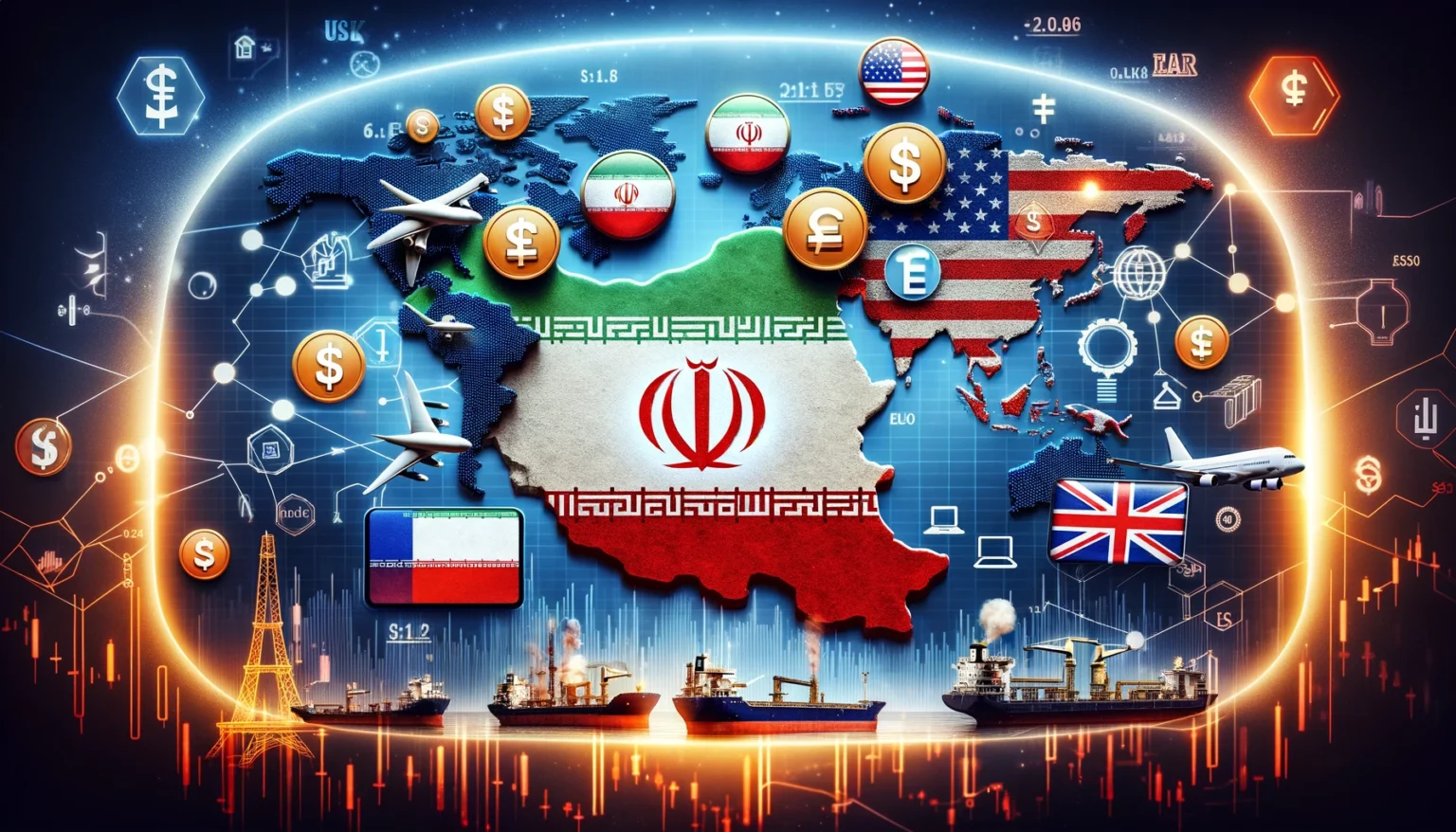In a bold yet arguably symbolic move, the United States and its allies recently imposed new sanctions on Iran. Analysts argue this is more psychological grandstanding than practical action, given the difficulty in tightening restrictions further on the Islamic Republic.
This renewed push for sanctions, primarily driven by the US and the UK, followed Iran’s significant drone and missile retaliation against Israel for bombing Iran’s consular sector in Damascus. According to the Financial Times, the US and EU aimed to increase pressure on Tehran to deter Israel from escalating the conflict.
Jake Sullivan, the White House national security adviser, announced that the US would impose new sanctions targeting Iran’s missile and drone program. These sanctions would focus on entities supporting the Islamic Revolutionary Guard Corps (IRGC) and Iran’s Defense Ministry.
However, Western analysts remain skeptical. Citing the Financial Times, they noted that Washington might not strictly enforce the “maximum pressure” campaign launched by former President Donald Trump in 2018. The Biden administration is hesitant to risk an inflationary surge in global oil prices during an election year.
Meanwhile, in Tehran, the Tasnim news agency reported that Iran’s oil industry has adapted to circumvent sanctions, with China as its primary customer, effectively shielding it from Western pressure. Data from Vortexa indicates that Iran’s oil exports are at their highest level in six years, bolstering its economy by approximately $35 billion annually.
The Resilience of Iran’s Oil Industry
Iran’s success in exporting crude oil highlights the challenges facing the US and EU in their attempts to exert economic pressure. Over the first three months of the year, Iran sold an average of 1.56 million barrels of oil per day, primarily to China. This export volume is the highest since the third quarter of 2018.
The stringent sanctions imposed in recent years have forced Iran’s economy to develop resilience and find ways to bypass restrictions. The post-pandemic spike in oil prices and China’s need for Iranian oil to maintain its economic growth further complicate efforts to curtail Iran’s oil exports.
Yahya Ale Ishaq, head of the Iran-Iraq Joint Chamber of Commerce, emphasized that sanctions are not new for Iran, which has faced various embargoes for 40 years. “For sanctions to be effective, both the sanctioning and sanctioned parties must meet certain conditions. The US is currently not in a position to impose effective sanctions against Iran, and Iran has developed methods to bypass them. Although the embargoes increase our costs, they cannot paralyze our economy,” he explained.
China’s Role and the Limits of US Influence
Majid Shakri, an economist, highlighted China’s crucial role in sustaining Iranian oil exports. He noted that the US is unlikely to compel China to reduce its imports of Iranian oil. “If China were to reduce its reliance on Iranian oil, it would need to source it from other exporters, such as Russia. However, given the potential changes in US-Russia relations after the upcoming presidential elections, this poses a significant risk,” Shakri said.
While the US might attempt to disrupt Iran’s currency exchanges by pressuring payment systems in the UAE, Shakri believes this would not significantly impact Iran’s oil exports.
Masoud Barati, another economist, pointed out that the capacity to impose more sanctions on Iran’s economy is limited. “There are two main reasons for the failure of US efforts to restrict Iranian oil sales. First, geopolitical shifts and China’s strategic non-cooperation with the US have strengthened Iran-China relations. Second, Iran’s robust mechanisms for selling oil have proven resilient against American sanctions,” Barati stated.
Barati further explained that Iran’s sales mechanisms to China, including export types and settlement methods, are effectively resistant to US limitations. “The only remaining option to pressure Iran would be seizing its oil tankers, but such a move would likely trigger retaliatory actions from Iran,” he added.
Conclusion
As the US and its allies grapple with the complexities of imposing new sanctions on Iran, the real impact remains questionable. Iran’s economic resilience, coupled with strategic alliances, particularly with China, continues to undermine the effectiveness of these sanctions. The geopolitical landscape suggests that while sanctions may serve as a symbolic gesture, their practical impact on curbing Iran’s economic activities remains limited.
